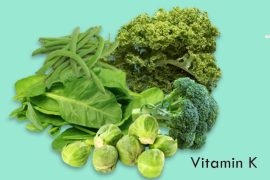Tea and coffee both offer significant health benefits due to their caffeine and antioxidant content. Tea, with its L-Theanine, provides calming effects, promotes relaxation, and supports hydration, which can help with stress reduction and sleep quality. Coffee, containing more caffeine, delivers a quicker energy boost, enhances physical performance, and may reduce the risk of chronic diseases such as Type 2 diabetes and Alzheimer’s, while also boosting metabolism and aiding in weight management. Both beverages are rich in antioxidants; coffee contains flavonoids and chlorogenic acid (CGA) that may inhibit fat cell production, while black tea features polyphenols like theaflavins, thearubigins, and catechins that aid in fat metabolism and improve gut health.
Historical Background:
- Tea: Tea’s origin dates back to around 2737 BC during the reign of Chinese Emperor Shen Nung. According to legend, tea leaves accidentally fell into a pot of boiling water, leading to the creation of tea. Initially used in religious rituals and for medicinal purposes, tea evolved into a widely consumed beverage. In 1824, the British introduced tea cultivation to India to break China’s monopoly. India now produces around 900,000 tonnes of tea annually in regions like Darjeeling, Nilgiri, and Assam.
- Coffee: Coffee, known for its stimulating effects, has also become a functional wellness product. Modern functional coffee not only provides caffeine but also offers various health benefits, merging enjoyment with purposeful health improvements.
Health Benefits and Nutritional Content:
Tea:
- L-Theanine: Tea, especially green tea, is high in L-Theanine, an amino acid that promotes relaxation, reduces stress, and enhances sleep quality. L-Theanine works synergistically with caffeine to provide a balanced mental state that supports alertness without overstimulation.
- Antioxidants: Tea is rich in polyphenols, including theaflavins, thearubigins, and catechins. These antioxidants contribute to improved weight management, protection against chronic diseases, hydration, and potentially better gut health by altering gut microbiota.
Coffee:
- Caffeine: Coffee contains significantly more caffeine than tea, delivering a stronger and more immediate energy boost. This heightened caffeine content enhances mental alertness, improves physical performance, and aids in boosting metabolism and burning calories more efficiently.
- Antioxidants: Coffee is abundant in flavonoids and chlorogenic acid (CGA), which offer strong antioxidant properties. These compounds may reduce fat cell production and provide protection against diseases such as Type 2 diabetes and Alzheimer’s. Coffee’s high caffeine content is also linked to increased calorie burning and fat metabolism.
Effects on Mental and Physical Health:
Tea:
- Calmness and Focus: The combination of L-Theanine and caffeine in tea helps achieve a balanced mental state, promoting calmness while maintaining focus. This effect is beneficial for stress reduction and for maintaining stable, prolonged mental alertness.
- Hydration: Tea also contributes to hydration, making it a suitable choice for those who prefer a beverage with lower caffeine content.
Coffee:
- Energy and Alertness: The higher caffeine levels in coffee provide a quick and effective energy boost. This enhancement in mood and mental alertness is beneficial for individuals needing immediate energy and focus.
- Performance and Metabolism: Coffee’s caffeine content boosts athletic performance and accelerates fat metabolism, which may be advantageous for improving physical performance or supporting weight management.
Consumption Guidelines and Considerations:
Tea:
- Daily Intake: Tea is generally less intense than coffee, but its effects vary depending on the type and amount consumed. For instance, green tea offers significant health benefits with lower caffeine levels.
- Health Conditions: Tea is well-tolerated by most people, but individuals sensitive to caffeine should monitor their intake to avoid adverse effects.
Coffee:
- Caffeine Limits: It is advisable to limit coffee consumption to about 2 cups per day, staying within a daily caffeine limit of 400 mg (approximately 4 cups of coffee). Excessive coffee intake can lead to issues like increased anxiety, insomnia, and digestive problems.
- Health Conditions: People with heart conditions, anxiety disorders, or panic disorders should be cautious with coffee consumption. Consulting a healthcare provider is recommended to determine the suitability of caffeine for individual health conditions.
Conclusion:
Both tea and coffee offer distinct health benefits and can be part of a balanced lifestyle depending on individual preferences and health goals. Tea is ideal for those seeking a calming, hydrating beverage with a balanced stimulant effect, while coffee is better suited for those needing a stronger energy boost and enhanced physical performance. Personal preferences, specific health conditions, and lifestyle goals should guide the choice between the two. For personalized advice, consulting with a healthcare provider or nutritionist can help tailor the choice to individual needs and health objectives.
Disclaimer:
The information contained in this article is for educational and informational purposes only and is not intended as a health advice. We would ask you to consult a qualified professional or medical expert to gain additional knowledge before you choose to consume any product or perform any exercise.







